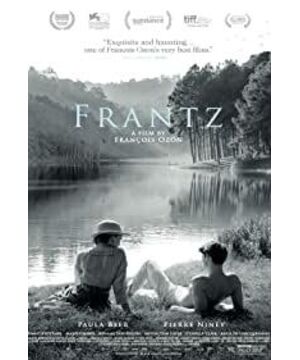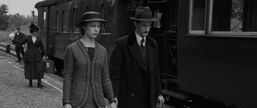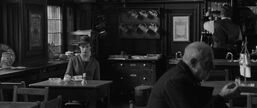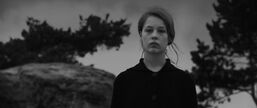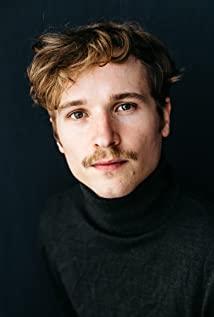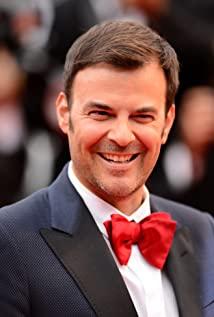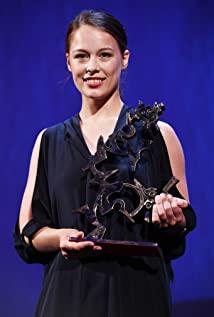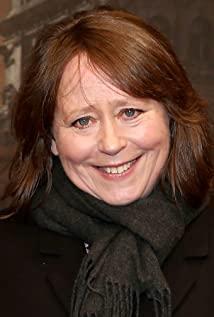After watching the film, the most interesting character is the one who died a priori in the love triangle, that is, one of the protagonists we never played: Franz.
Franz is a taciturn person in the movie. In the few scenes he appears, two are Adrian's fantasy, and the remaining one is Anna's fantasy. Franz's only self-domination is his death. He and Adrian met in the trenches, stray bullets like rain and gunpowder smoke, and they only had three seconds to think about their next fate.
The encounter between the two of them is what I think is the most ambiguous, meaningful and even quite absurd segment in the film, where Adrian and Franz are misplaced puppets, forced to act out what they are not familiar with. theatrical repertoire. None of the creators, natural or acquired, put anything militant in these two young bodies, whose eyes were born to gaze upon a beautiful girl, Verlaine and Manet flowed from their lips, and their arms were close. It is the bowstring of the violin, and the legs love swimming and waltzing. Even if they quarrel, the most drastic solution they can think of is a Hamlet-Laotis-style duel.
Adrian's imagination is so beautiful and appropriate, I even suspect that the director has arranged a secret drama, turning them into Sebastian and Charles in the army, which is the love of youth and the joy of youth. Unable to forget, Derian visits his lover's fiancée in an attempt to explore the deceased's past.
However, I was wrong - rather than saying that Ou Rong gave up the usual suspense and puzzles in this film, it is better to say that this is the unexpected - he arranged for two characters who have nothing to do with war to play a role. This seems to be an ordinary war scene, so this war is like the rain in the plum season, lingering in the bones of the parties involved, and there is no way to leave.
Now let's go back to September 15, 1918, in Dormans-sur-Marne, Adrian and Franz looked at each other for a few seconds before one raised his gun and pulled the trigger, the other Falling down, the rosy color on cheeks and lips quickly faded.
At that time, the two parties may not have time to think about more far-reaching issues, and as a spectator we learned that this seemingly mundane encounter on the battlefield became a turning point in the fate of many people. People always have to come to an ending, as Borges described in "The Garden of Forking Paths," though it may be "unlimited regret and weariness" afterwards.
If we imagine an alternative ending, Franz could be Desmond Doss in Hacksaw Ridge, a pacifist who refuses to use weapons and survives a hail of bullets to become a hero who finds another way. Adrian could be Spellman in The Pianist, among the ruins of the battlefield, the violinist of the Paris Orchestra plays music that attracts a young German officer who stands in front of the violinist , the spear drooped down weakly, the palms clenched the roses on his chest, and his face was as childish as a neighbor's boy. At the end of the song, he looked deeply at Adrian's big fragile eyes and artist's beard, and said: Thank you, you reminded me of the years when I read Verlaine in Quedlinburg, Germany...
Even for a second, one of them could raise his arms and shout: Please don't shoot! I believe the other one is never going to strike again anyway, so they can brush past each other, taking no one's captive, then quickly forget about each other and continue to seek refuge in the hail of bullets.
They didn't do that. Adrian chose to shoot, and Franz blocked the win by himself from the start. With an unloaded, unloaded gun, he faces an unpredictable future with his poetry, music and love on his chest. He is the first "suicide" in the movie, the first person to fall back and embrace death.
Franz's blood was dry, and his long suicide journey was over. All that was left for Adrian and Anna's family was a letter and a rose, which was Franz's only thought in this film that he directly stated:
The sound of artillery fire is so terrifying, you must be hard to imagine. The war is getting more and more intense, maybe I can survive and come back alive. The roses you sent me, I have always kept in my close pocket, next to my heart.
Therefore, I would like to call Franz a modest pacifist. There are plenty of anti-war rhetoric in the film, but Dr. Hoffmeister's remarks in the tavern, where he said, "We're all stupidly celebrating the deaths of our children." Franz The peace of the people is more "people's" peace. He never once mentioned philosophical questions such as whether human beings should kill each other. He just told his fiancée: The artillery fire is too terrifying, I don't want to kill or be killed, Darling, I wish I could think of your face and our love until the day it ends.
Only here did I understand why Franz could not have been Desmond Dawes, nor could he have been a German military officer who loved music. The end, of course, was death, and only his death could make a perfect, universal, generalization. Sexual Tragedy. Franz's death is the background and beginning of the film, when Anna and Adrian's story begins, Franz becomes a constellation above their heads, always shining in the sky, representing a kind of peace A symbol of , a happy atmosphere, all the things that were possessed before the war, lost during the war, and worth remembering after the war. He is the music and art that Adrian talks about, the memories and love that Anna cherishes in her heart, and the lost son and friend of all the men in the tavern.
Franz has thus become the background color of this film. Now we can invite male and female protagonists. They each bring a part of Franz to meet each other. Under the memories left by the dead young man to the world, the performance will be staged. Such a neat, delicate and tactful love story.
View more about Frantz reviews


